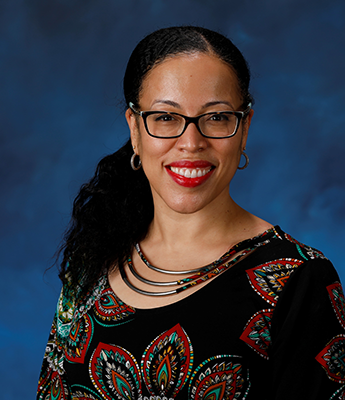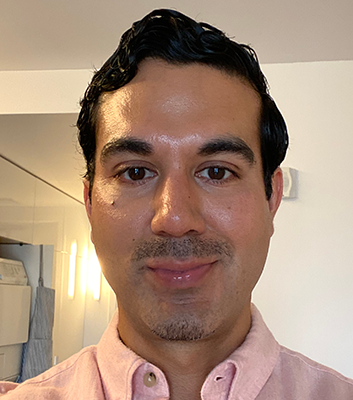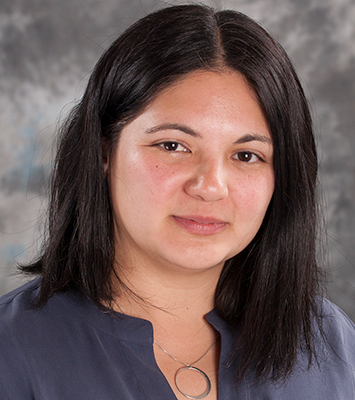Join the University of California Global Health Institute in promoting National Institutes of Health (NIH) Diversity Supplements for students, postdocs, and faculty.
This webinar amplifies the experiences of three successful NIH Diversity Supplement recipients from UC Irvine, UCSF, and UC Merced.
Moderator:
Rob Rivers, PhD
Program Director at the National Institute of Diabetes and Digestive and Kidney Diseases (NIDDK)
Rob Rivers, Ph.D., is a program director at the National Institute of Diabetes and Digestive and Kidney Diseases (NIDDK), a part of the National Institutes of Health. He leads programs that help ensure the biomedical research workforce reflects the diversity of the population and addresses all health concerns. Rob started and currently runs the international non-profit organization Umbrella Initiatives Foundation that provides improved educational opportunities to children living in poverty in Peru and Bolivia. He earned his Ph.D. in chemistry from the University of Cambridge and his B.S. degree in chemistry from Kentucky State University. @robclayrivers
Featured Panelists:
 Candice Taylor Lucas, MD, MPH
Candice Taylor Lucas, MD, MPH
Associate Clinical Professor, Department of Pediatrics, School of Medicine, Co-Director of Leadership Education to Advance Diversity – African, Black, and Caribbean, Associate Program Director of UCI/CHOC Pediatric Residency Program, University of California, Irvine
Dr. Candice Taylor Lucas, MD, MPH is a general pediatrician and health sciences associate professor with the UC Irvine School of Medicine. She is co-director of the UCI School of Medicine's mission-based program Leadership Education to Advance Diversity - African, Black, and Caribbean, an associate program director of the UCI / CHOC pediatric residency program, and faculty affiliated with the UCI Pediatric Exercise and Genomics Research Center. Her research focuses broadly on community-engaged active play promotion, childhood obesity prevention, and maternal-child health inequities.
 John Gonzales, MD
John Gonzales, MD
Associate Professor, Uveitis Fellowship Program Director, F.I. Proctor Foundation, University of California San Francisco
Dr. Gonzales is an Associate Professor of Ophthalmology at the Francis I. Proctor Foundation at the University of California, San Francisco specializing in uveitis and medical cornea. He recently completed an early career award from the National Institutes of Health – National Eye Institute to study the spectrum of keratoconjunctivitis sicca in Sjögren’s syndrome utilizing the Sjögren’s International Collaborative Clinical Alliance (SICCA) cohort. Dr. Gonzales is also conducting a randomized controlled trial evaluating treatment of cytomegalovirus anterior uveitis in immunocompetent individuals. Dr. Gonzales’s interests also extend to ocular oncology, specifically vitreoretinal lymphoma, and he is interested in how clinical features may be correlated with mutations associated with lymphoproliferation as well as resistance to chemotherapeutics. Dr. Gonzales is a Section Editor for Current Opinion in Ophthalmology, Assistant Editor for Journal of Ophthalmic Inflammation and Infection, and is the uveitis fellowship program director at the Proctor Foundation.
 Clarissa J. Nobile, PhD
Clarissa J. Nobile, PhD
Kamangar Family Chair in Biological Sciences and Associate Professor, School of Natural Sciences, Department of Molecular and Cell Biology, UC Merced
Dr. Clarissa J. Nobile is the Kamangar Family Chair in Biological Sciences and an Associate Professor of Molecular and Cell Biology at the University of California, Merced. She is also co-founder and Chief Executive Officer of BioSynesis, Inc., a Bay Area startup company whose mission is to establish biofilm-specific diagnostics and therapeutics to detect and treat recalcitrant hospital infections. Prior to joining the faculty at the University of California, Merced, Dr. Nobile undertook her postdoctoral studies at the University of California, San Francisco, and earned her doctoral degree in Microbiology with distinction from Columbia University. Dr. Nobile’s research is directed towards understanding the molecular and mechanistic bases of microbial communities.


